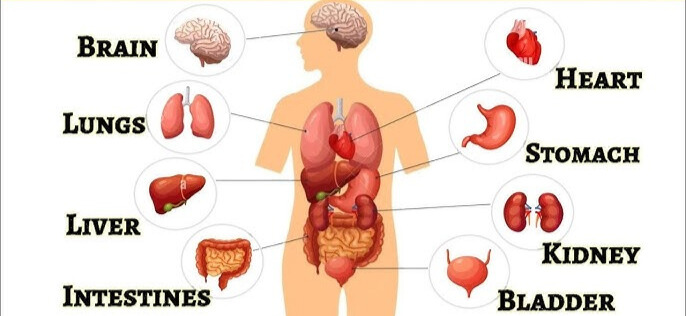Organs And Systems
Key Notes :
What are Organs?
- Organs are parts of the body that perform specific functions, like the heart, lungs, and stomach.
- Each organ is made up of tissues that work together to do a job.
Major Organs in the Body:

- Heart: Pumps blood throughout the body.
- Lungs: Help us breathe by taking in oxygen and releasing carbon dioxide.
- Stomach: Breaks down food to help the body get nutrients.
- Brain: Controls everything the body does, like movement and thinking.
- Kidneys: Filter waste from the blood and make urine.
- Skin: Protects the body and helps regulate temperature.
What are Systems?
- A system is a group of organs that work together to do a specific job.
- The body has different systems that help us stay healthy and alive.
Examples of Body Systems:

- Circulatory System: Includes the heart and blood vessels, and moves blood around the body.
- Respiratory System: Includes the lungs and helps us breathe.
- Digestive System: Includes the stomach and intestines, and helps break down food.
- Nervous System: Includes the brain and nerves, and helps send messages to control the body.
- Excretory System: Includes the kidneys and bladder, and removes waste from the body.
How Do Systems Work Together?
- Different systems work together to help the body function.
- For example, the respiratory system helps you breathe in oxygen, and the circulatory system moves it to all parts of your body.
The Importance of Taking Care of Our Organs and Systems:
- Eating healthy foods, exercising, and getting enough rest are important to keep organs and systems working well.
Let’s practice!

